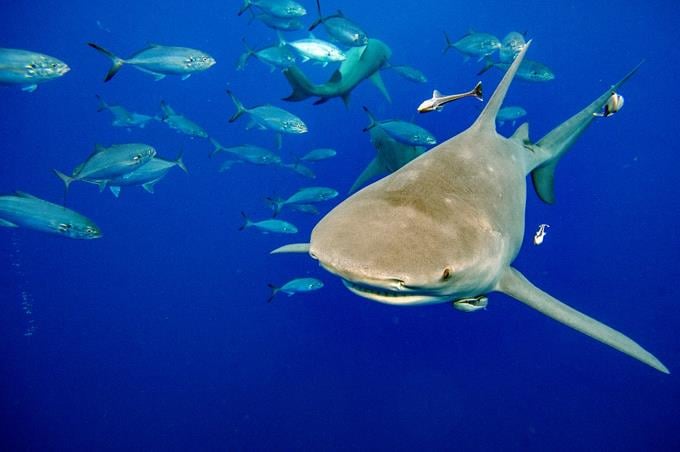The COP19 of the Convention on International Trade in Endangered Species of Wild Fauna and Flora (CITES) culminates this Friday in Panama, after adopting half a century of resolutions. The most outstanding:
1) SharksRegulate the trafficking of the 54 species of the families of requiem sharks (Carcharhinidae) and hammerhead sharks (Sphynidae), the most trafficked as an ingredient in highly desired fin soup in East Asia.
The decision was almost unanimous, as only Japan made reservations and removed the blue shark. Having no support from any country, the Japanese delegate who said this resolution was "unreasonable and unscientific".
CITES also added to Annex II the family of guitar rays (Rhinobatidae) and several species of freshwater rays (Potamotrygon).
two) Glass frogs Glass frogs (Centrolenidae), which inhabit Central and South America, were placed on CITES Annex II, for regulated trade.
"This species has been affected by its high demand in the pet market"explained to AFP Joaquín de la Torre, Latin America director of the NGO International Fund for Animal Welfare (IFAW, in English).
During the preliminary discussion, the European Union and Canada expressed reservations and requested that the protection not cover the entire family of these transparent-bodied frogs (there are more than 160 species).
Upon verifying that their position was totally minority, they withdrew their reservations and the resolution was unanimously converted.
3) South American turtlesCITES demonstrated different levels of protection for some twenty American and Asian turtles, including a dozen freshwater species.
Among them are the matamata, some 50-centimeter South American tortoises that look like a prehistoric animal (in fact they are), very attractive to collectors. Your traffic will now be regulated.
There are two varieties of matamata, from the Amazon (Chelus fimbriaba) and from the Orinoco (Chelus orinocensis), but no one knows which they are.
"It’s good news for both species."Doris Rodríguez, from the Peruvian Forest and Wildlife Service (Serfor), told AFP.
CITES also listed a North American species, the alligator turtle (Macrochelus temminckii), in Annex II, but declined to include the serpentine or snapping turtle (Chelydra serpentina).
4) Amazonian crocodiles Brazil and the Philippines will be able to export farm-raised crocodiles, which went from Annex I (total trade ban) to Annex II.
Now it will be allowed to export skin or meat of the overo caiman or broad-snouted caiman (Caiman latirostris), which lives in the Amazon and the Pantanal of Brazil, as well as in wetlands, rivers and lakes of neighboring countries.
"The populations of these animals are very large, because they have had great reproductive success."explained to AFP the researcher Miryam Venegas-Anaya, an expert in crocodiles from the Technological University of Panama and the Smithsonian Institute.
The same decision was made with the marine crocodile (Crocodylus porosus) of the Philippines, which lives mainly on the islands of Mindanao and Palawan (or La Paragua, in Spanish).
However, it kept the Siamese crocodile (Crocodylus siamensis) in Annex I, refusing Thailand’s request to move it to Annex II.
5) IvoryCITES refused to authorize the reopening of the ivory trade, as sought by some African countries.
"Any legal trade in ivory offers opportunities for criminals to launder poached elephant ivory into the market"said IFAW Assistant Vice President for Conservation Matthew Collis, celebrating the summit’s decision.
In addition, Botswana, Namibia and Eswatini (formerly Swaziland) requested permission to resume the supervised sale of southern white rhinoceros (Ceratotherium simum simum) horns, which was voted down: 85 countries said no and only 15 voted yes (with 26 abstentions).
